Meet my dad:
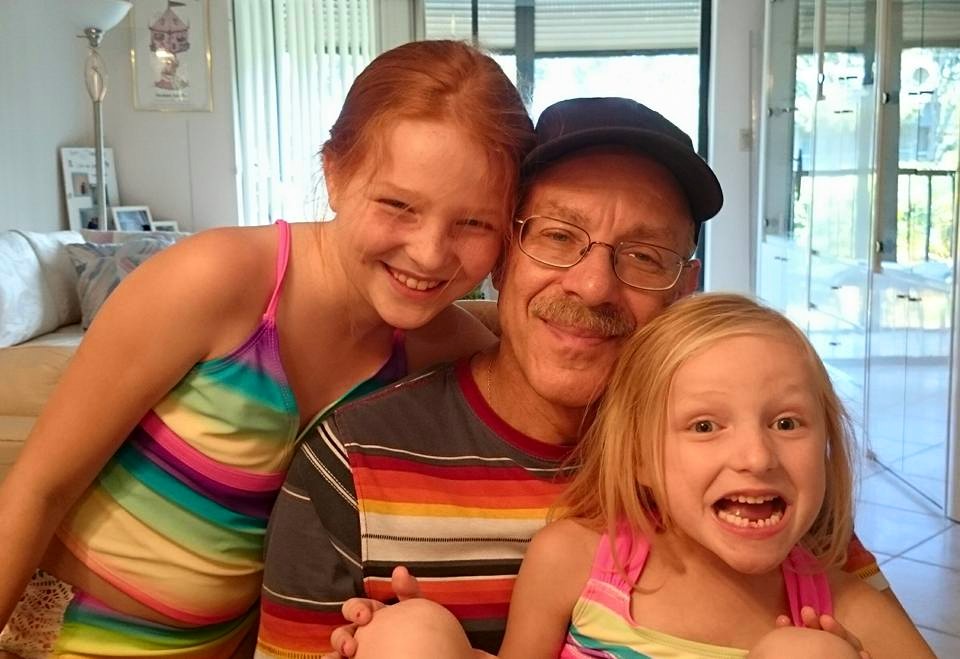
Fabulous dad & grandpa (Zayde). Super nice guy. One of the smartest people I know.
Oh, and he’s a runner.
My dad starting running when he was a sophomore in high school, back in October 1964 – before GPS watches, hydration belts, energy gels, and a whole lot of other things that today’s runners take for granted. And he was fast, too – his 5K PR is 16:58 and his half marathon PR is 1:36. Actually, he’s still fast. He can run circles around me.
Anyway, my dad knows a lot about running, and sometimes he’s kind enough to share it here. Last summer, he wrote a post with some safety tips for running in hot weather. Now, it might seem like an odd time to bring up this subject, since it’s November and all. In fact, you’re probably starting to see posts about running in cold weather pop up.
But in light of the events at the Savannah Rock’n’Roll Marathon earlier this month, I think a refresher is in order. In case you missed the news, race day was unseasonably warm & humid. Sadly, a runner died during the race, and many others sought medical attention for dehydration and other heat related issues.
This tragedy serves as a good reminder that we are never 100% immune from heat & humidity. Some of us (like me) live in climates that are hot & humid 10-11 months of the year. Many runners travel to races with climates to which they are unaccustomed. And as was the case in Savannah, unseasonably warm temperatures can & do happen.
So while many of you won’t need these tips for a number of months, it’s important to keep them in mind so that you’ll be prepared if you find yourself running in the heat and/or humidity.
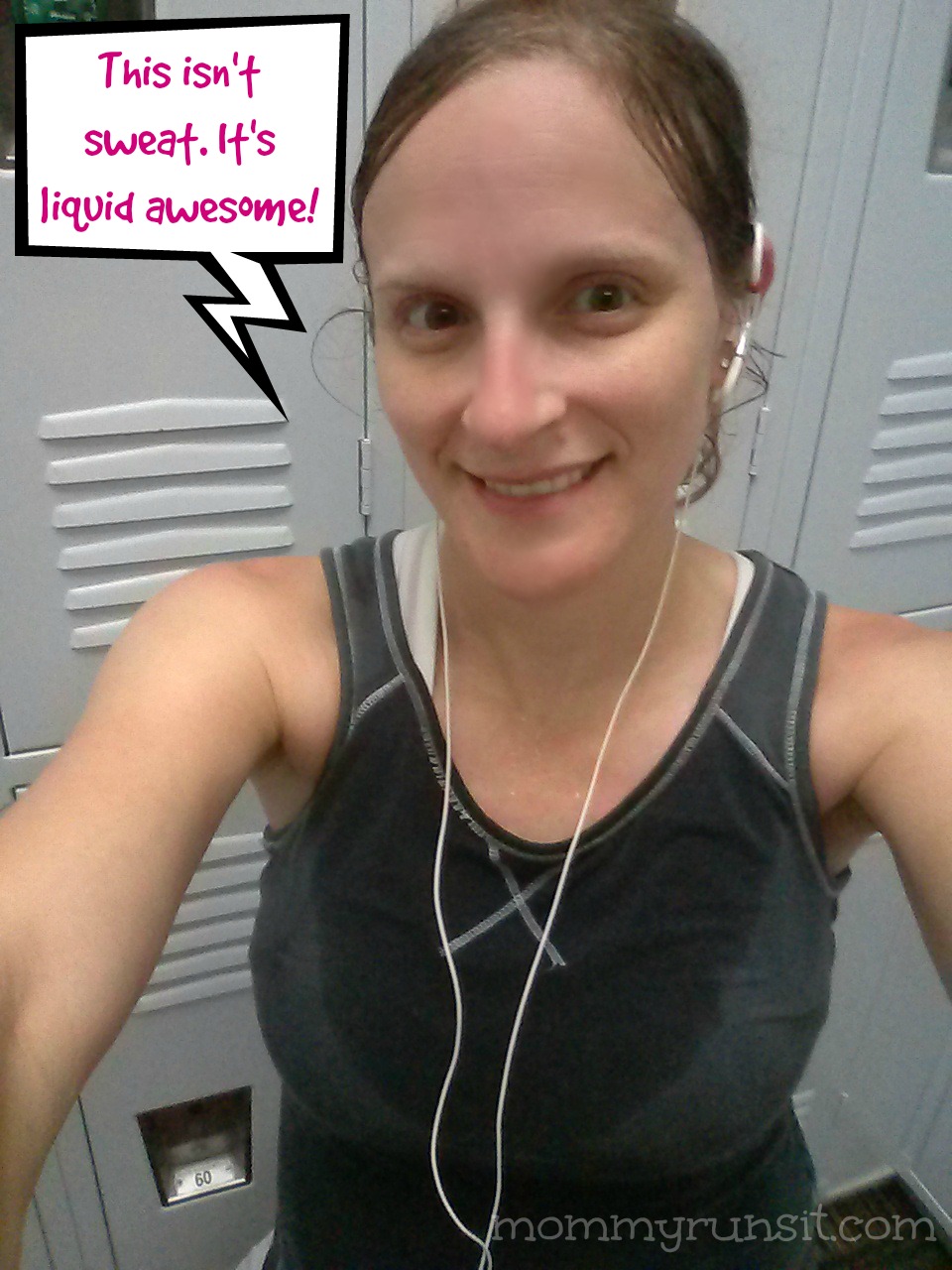
Here’s what my dad has to say on the subject. (You can read his original post HERE.)
Last fall I discussed running in cold weather. The key take-away from that discussion was to dress in layers, adding more layers as the temperature drops. Unfortunately, the reverse is not true for running in hot weather. You can only remove so many layers before you get into trouble with public indecency laws.
So what is my advice? It is simply don’t run in the hot weather. Let me clarify what I mean by that. I am not advocating taking the entire summer off from running. As an engineer I like to use precise terms and the phrase “hot weather” is very imprecise. Growing up in New York City, as we transitioned from winter to spring I considered temperatures in the high 60’s to low 70’s as warm weather and the 80’s as hot weather, or time to wear t-shirts and shorts. As we went from summer to fall that same temperature range was considered to be cool weather.
By saying don’t run in the hot weather I mean try to run in the coolest part of the day, before sunrise or after sunset, since it is not as hot as it would be in the middle of the day (remember to adhere to the running in the dark safety tips). Most people, myself included, find it difficult to run at these times of the day, so pick the coolest part of the day that works for you. I tend to run after work, usually after 5:00 pm when it is cooler than it would be at mid-day or early afternoon. When possible, run on the shady side of the street or sidewalk (unless that presents a safety hazard). If possible pick a path with lots of grass (such as a park) since grass radiates less heat than concrete and asphalt.
In hot weather, a slight rain is your friend in the summer. It will help cool you off. Just remember to make sure you take steps to thoroughly dry out your shoes afterwards. No rain? You can also cool off by pouring water, holding a wet towel, or putting ice on the back of your neck.
You will probably find that you are running slower when the temperature is higher. That is your body’s way of telling you to take it easy. The heat will take away more of your energy. Plan for this and start out a little slower until you get a feel for how you are doing. You can kick it up in the second half of your run if you feel good.
Wear lightweight, loose fitting clothing with vents or mesh. This will allow your body to breath and cool down naturally. Try to wear light colored clothing since the darker colors absorb the sun’s heat. You need to add a head covering with a brim to shade your eyes and forehead. Wearing a hat is actually a controversial subject. In the winter we wear a hat to keep the body heat in. Using the same logic, wearing a hat in the summer will help to overheat you. I still like to wear a hat since it protects my follically-challenged head. You can substitute a sun visor for the hat brim and avoid the overheating your head issue. Remember to wear sunscreen with an SPF of at least 30. Sunglasses are also recommended to protect your eyes from UV damage.
Dehydration is always a concern for long hot weather runs. Some runners carry water or Gatorade in bottles with them. I have known other runners who have stashed bottles along their route and stop to take a drink at their personal water stations.
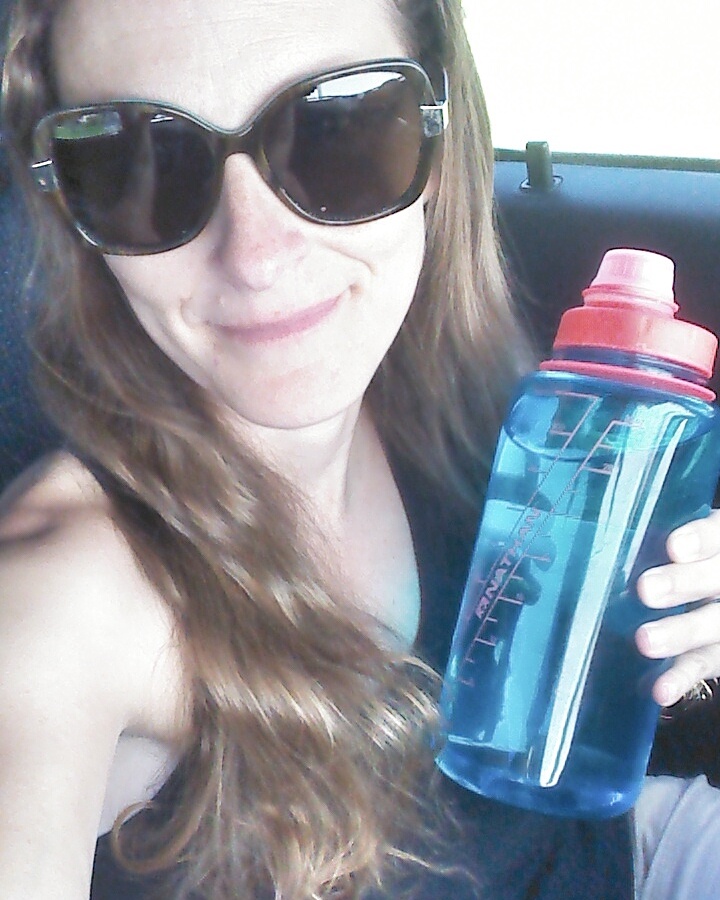
Hot weather running requires that you hydrate both before and after your run. I recently read an article that said to drink 16 ounces of a sport drink an hour before you start your run and then to drink five to eight ounces every 20 minutes after you start. I will admit that I do not drink nearly that much before I start my run and do not drink anything until I return (about 30 minutes later). I think you need to find what works best for you.
Alcohol and some medications (antihistamines, antidepressants, etc.) can have a dehydrating effect. Taking them just before a run can increase the dehydrating effect of hot weather running. Take your meds as prescribed, just be sure to properly compensate for their effects.
Avoid running outside if the temperature is above 98.6 degrees and/or the humidity is above 70 to 80%. While running, the body temperature is regulated by the process of sweat evaporating off of the skin. Under conditions of high temperature combined with high humidity the sweat evaporation process will be slowed down or actually stopped and you can rapidly overheat your body.
You need to be aware of the symptoms of heat related stress such as heat exhaustion or heat stroke. If you become dizzy, nauseated, have chills, or cease to sweat – stop running, find shade, and drink water. Ignoring these symptoms can be life threatening!
If you are unaccustomed to running in the heat & humidity, I have several pieces of additional advice:
- Make sure that you hydrate before you start your run.
- If your run will last more than 30 minutes consider making provisions to rehydrate.
- Take it easy in the beginning of your run while you see how your body is reacting to the heat and humidity. You can pick up the pace in the second half of the run if you feel strong.
- Try to run with a buddy. You can watch each other for signs of heat stress.
- If you have a medical condition, such as asthma, talk with your physician about any special precautions he or she thinks you need to observe.
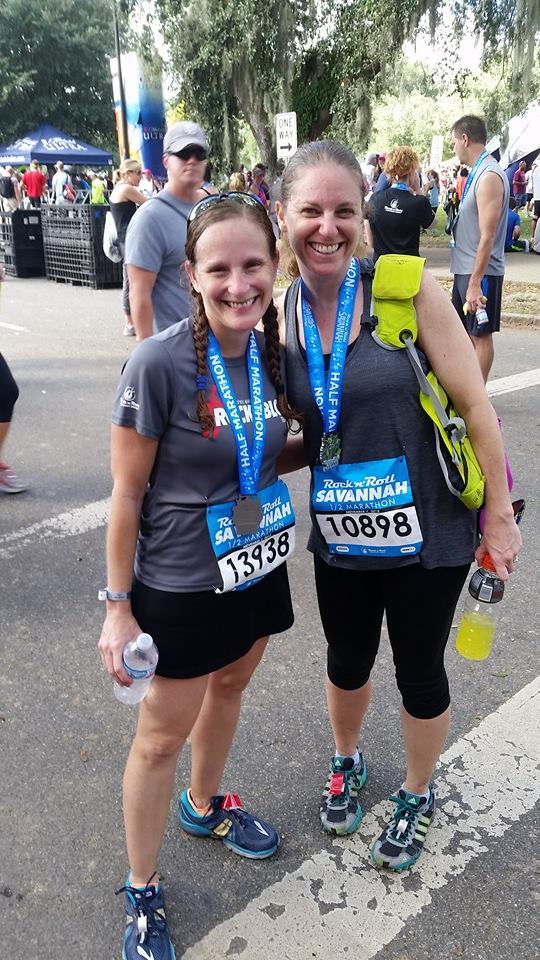
I hope you enjoyed my dad’s post! You can find his other posts HERE, and I should have his latest post up here soon! I’m working on my recap of the Savannah Rock’n’Roll Marathon, and I’ll have that up here soon too. Have a great week and stay safe out there!
xo

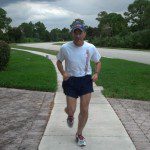 Albert is the proud father of Mommy Runs It’s owner Sharon Wilhelm. He has degrees in Nuclear and Mechanical Engineering and is a licensed Professional Engineer in Florida and is also certified as a Project Management Professional. He started running as a sophomore in high school (Oct 1964), and never stopped. In high school and college he was a middle of the pack runner. He hit his peak as a runner in the first 10 years after graduating college. Though never achieving a champion performance, he ran some decent times (5K – 16:58, 5 mi – 27:07, 6 mi – 33:00, 10K – 34:58, 13.1 mi – 1:36, 20 mi – 2:20:51, marathon – 3:37:48). Currently he runs primarily to maintain a level of physical fitness. He hopes that when he retires in a few years he will be able to increase his training and return to competitive running. His secret (not so secret any more) ambition is to be a high school track coach; not to produce champion runners, but to instill the love of running in these young people and pass on his experience.
Albert is the proud father of Mommy Runs It’s owner Sharon Wilhelm. He has degrees in Nuclear and Mechanical Engineering and is a licensed Professional Engineer in Florida and is also certified as a Project Management Professional. He started running as a sophomore in high school (Oct 1964), and never stopped. In high school and college he was a middle of the pack runner. He hit his peak as a runner in the first 10 years after graduating college. Though never achieving a champion performance, he ran some decent times (5K – 16:58, 5 mi – 27:07, 6 mi – 33:00, 10K – 34:58, 13.1 mi – 1:36, 20 mi – 2:20:51, marathon – 3:37:48). Currently he runs primarily to maintain a level of physical fitness. He hopes that when he retires in a few years he will be able to increase his training and return to competitive running. His secret (not so secret any more) ambition is to be a high school track coach; not to produce champion runners, but to instill the love of running in these young people and pass on his experience.
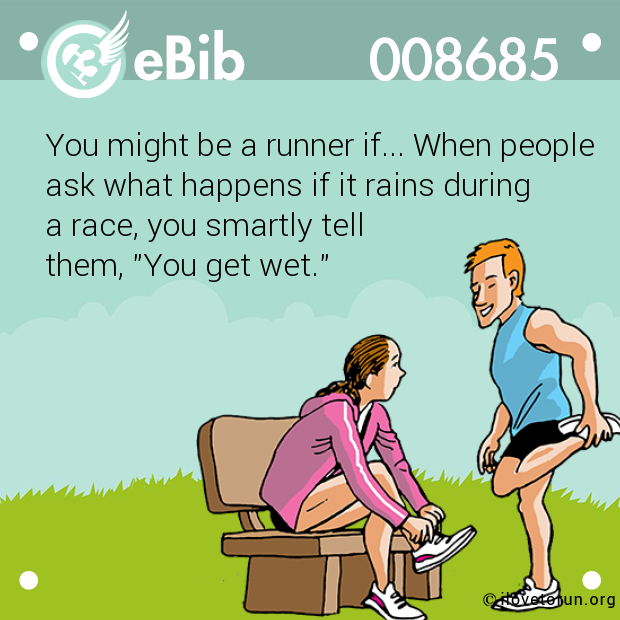
I'd love to hear your thoughts...